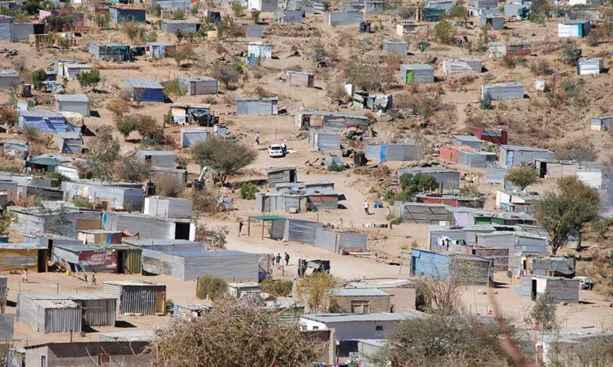Windhoek-Namibia -Growing among the Baherero people in Serowe, one of the painful thing they used to talk about was their removal from Windhoek and thrown into the single quarter houses known as Katutura, a shanty township outside Windhoek.
Most of the Namibians who sought refuge in Botswana disputed the notion that they were independent reasoning that it is only in paper but not in the real sense. This, they supported by saying that economy is still in the hands of the colonizers.
Opportunity came to visit the country and see if indeed they are just spectators in the economic running of their country.
Arriving at Hosea Kutako International Airport, about 43 kilometers from Windhoek, one could see that Namibia is one of the most organized African country and the people are very friendly.
Windhoek is squeaky clean and strangely they were more people of the colour than the indigenous people within the city centre.
I asked the cab driver where the people are, when the city is looking deserted and he quickly responded, ‘’Katutura my brother, we don’t own this city!”
His answer which was accompanied by deep emotions of sorrow, hit me emotionally as I look at his somber face.
On Monday I decided to take a trip to Katutura with some of the colleagues from Kenya, Uganda and Gambia to experience the real Namibia.
Our first stop was at Xwama Cultural Village and Traditional Restaurant. Everyone was excited to taste the traditional cuisine and taking ‘selfies’. Entering the restaurant there were picture of Namibians being moved from Windhoek to Katutura hanging on the walls depicting the history of the area. The picture told a story of pain and despair of the Namibians during the pre and post-apartheid era.
The place is abuzz with tourists who want to experience the real Namibian lifestyle which are connoted with a sense of self unworthiness.
Most of the houses in Katutura are made from iron sheets and they are few mansions coming up and our tour guide informs us that they are mostly owned by high profile people like cabinet ministers, Members of Parliament and Chief Executive officers of multi-national companies who are mostly Namibians.
The cheapest rental house in Windhoek is said to be around P10, 000 per month and buying a house in the city for the ordinary Namibians is just a pie in the sky.
We moved up to the famous Oshetu (ours) Community Market for kapana and we were greeted by the heat, the noise and the sheer size of the place.
Kapana is a famous grilled beef meat cut in small pieces and sold at the open space at the market.
I interviewed one of the guys who were grilling the meat and wanted to know if the business is doing well and with pain written all over his face he answered in negative.
“My brother we buy the beef from Meat Corporation of Namibia and is very expensive. We are not allowed to slaughter our own cattle. So we are just pushing business for the Germans who own Meat Co,” he says with his colleague chipping in saying that theirs is not the land of the brave anymore.
In the parking lot, posh cars are parked there as the owners went for their tapana and we were informed most of them are executive officers and are staying in Katutura as they cannot afford the accommodation in the city.
We moved to Clemence Kapuuo and Mungunda streets where we were welcomed with open arm of stench from the overflowing sewage system but it was life as usual for the residents who most of them find solace in the bottle.
Most of the roads in Katutura Township are not tarred and they are, they are dominated by potholes.
Walking around, I noticed piles of dirt, water-filled potholes and streams of smelly running water from the communal pumps.
Recently Namibian President Hage Geingob said he will push forward with expropriating land and redistributing it to the majority black population in the country.
He was quoted in the Namibian media saying that they share a burning land issue and a racialized distribution of land resources with South Africa.
The Namibian President said that this comes from a common history of colonial dispossession and that the status quo will not be allowed to continue.
